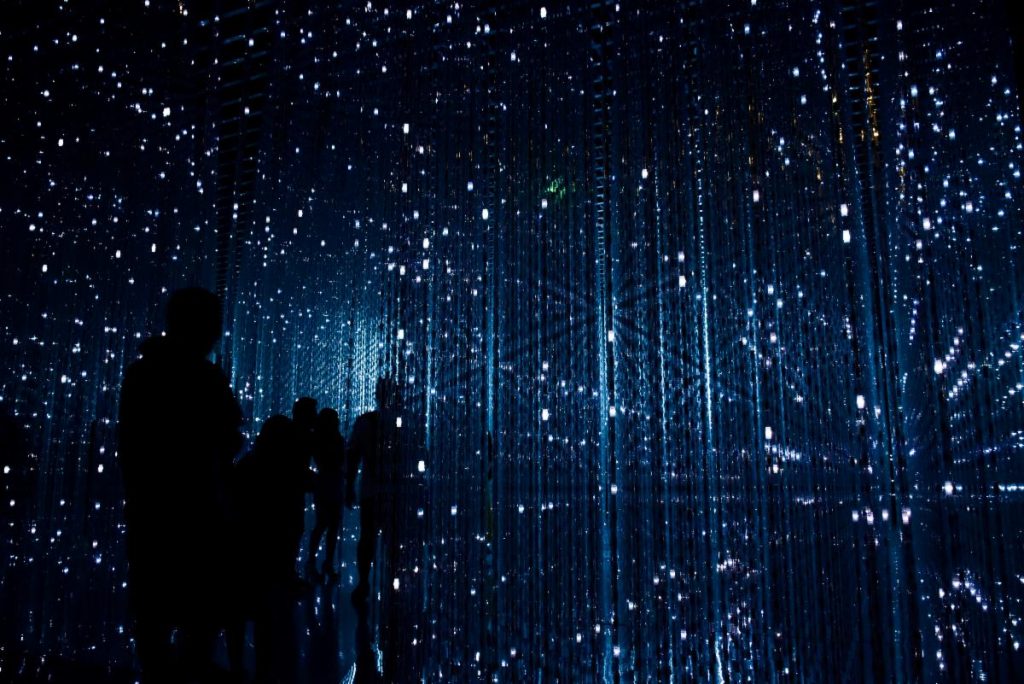It’s not a problem I ever envisioned having.
More accurately, I never really calculated this particular disruption in my generally cozy life.
You see, this morning my iPhone told me the temperature outside with wind chill felt like -11°.
Blessed with excellent central heating, it seemed a perfect opportunity to lounge under the covers, perhaps until springtime.
And yet, indifferent to the below zero winds, Vlad still wanted––make that NEEDED––his morning hour in the baseball field.
Sigh.

To be truthful, given our mutual multiple layerings, it actually wasn’t so bad.
Many of his most stalwart friends––Moon, Woody, and Dewey––had also convinced their owners to brave the cold at 7am.
Later in the day, the contrast made our most recent walk, when it was 14°, seem almost tropical.
All of this frigidity however, inspired me to quickly introduce the theme of this month––Embrace the Paradox (new meditation HERE)––through a phenomenon I’ve just learned about, one that totally fascinates me.
Fittingly, it centers around freezing temperatures.
It’s called the Mpemba Effect.

Aristotle may have been the first to write about it, but so did Frances Bacon and René Descartes in the 1600s.
And yet, it’s named after Erasto Bartholomew Mpemba, a Tanzanian schoolboy.
In 1963 Erasto observed in a cooking class that his heated ice cream mix froze faster than the cold mix.
This went against all common sense.
Anyone would assume the colder mix––everything else being equal––would freeze faster.
And yet Erasto (and Aristotle and Frances Bacon and René Descartes) all noticed that the opposite actually happened.
Years later, when he brought this up to his college physic professor, he was ridiculed by the class.
Determined to prove him wrong, his professor Dr. Denis Osborne experimented and saw to his consternation that Erasto was indeed right.
The two ended up writing a scientific paper together and published their findings, resulting in Erasto’s name being given to this paradox of freezing, the Mpemba Effect.

Since it’s the theme of this month’s meditation, let’s look for a moment at the actual definition of “Paradox.”
I’ve googled multiple examples but let’s use Merriam-Webster’s:
A paradox is
“A statement that is seemingly contradictory
or opposed to common sense
and yet is perhaps true.”
Thus, there’s often surprising wisdom in the paradox, particularly since there’s always an element of mystery and uncertainty.
Paradoxes reveal what we don’t automatically see.
Sometimes multiple conclusions can be drawn.
And in the end, they are maybe only “perhaps true.”
(Or only as true as we’re willing to accept).
Indeed, there’s often an element of playful ambiguity or even biting wit involved.
For example, one of my favorite paradoxes––particularly as I’m working on Nonchronological™––is the saying usually attributed to George Bernard Shaw:
“Youth is wasted on the young.”

I’ve been increasingly interested in spiritual and metaphysical paradoxes and their practical applications.
They range from “Less is More” to “In Giving We Receive.”
In all of my abundance courses, I’ve found the most difficult thing for students to embrace is the seeming paradox that Acceptance is the first step in Transformation.
So many feel that acceptance equals endorsement, complacency, or even worse, entrenchment.
It doesn’t at all.
And yet I understand.
When you’re drowning in quicksand, you may intellectually know that the more you struggle, the worse it gets.
The wiser strategy, the only one in fact that works, of course, is to accept the situation and find that stray vine (or steady person) you can rely on to gradually free yourself.
Paradoxically, not fighting to escape is the only way out.

Here’s another interesting thing about the Mpemba Effect.
To this day, no one really knows why it happens.
You can check out Wikipedia for a detailed list of all current theories.
They include:
- Microbubble-induced heat transfer (which sounds mysterious and fun)
- Evaporation
- Convection
- Effects of Minerals in the water
- Hydrogen Bonding
- Thermal Conductivity
- Dissolved Gases
- Crystallization
- Frost’s insulating effects
The paradox’s mystery endures.
And … speaking of frost / Frost––and alternative theories ….

I believe it was the first poem I ever memorized.
That is, Robert Frost’s Fire and Ice.
FIRE AND ICE
Some say the world will end in fire,
Some say in ice.
From what I’ve tasted of desire
I hold with those who favor fire.
But if it had to perish twice,
I think I know enough of hate
To say that for destruction ice”
Is also great
And would suffice.
Some say the poem was inspired by a canto in Dante’s Inferno in whichthe very worst offenders in hell––the traitors–are trapped forever in a lake of ice.
Alternatively, Harlow Shapley, head of the Harvard College Observatory from 1921-1952 and the most prominent astronomer of his day claimed credit for the inspiration.
Shapley calculated the size of our galaxy and our sun’s position in it.
He met with Frost a year before the poem was published.
The poet asked the astronomer how the world would end.
Shapley told him either the sun will explode and destroy the earth or, if the earth manages to avoid this destruction, our planet will eventually drift off and freeze in deep space.
(As within any good mystery––similar to paradox––contradictory conclusions coexist.)
(And just FYI, if the poem feels recently familiar, Kristen Stewart reads it aloud at the beginning of the final episode of the Twilight saga.
Apparently––even though I didn’t see any on the baseball field this morning when, once again, it was -11°––even vampires aren’t immune to worrying about perishing in Brooklyn’s frigid apocalypse.)

The future remains a mystery.
No one knows whether the world will end in Fire or Ice.
And I certainly don’t understand why warmer water freezes faster than cold.
(And neither does anyone else).
And yet I’m undaunted, in fact, inspired to look at other paradoxes this month.
Those moments where we get what we want by letting go rather than holding on.
Or the plot twists and sudden reversals that give us vastly more insight than the steady, predictable path.
And especially those moments when the curtain rises and we see who the wizard really is…or those when we realize we really had the power all along.
Finally, please allow me to share perhaps my favorite paradox, something writing these newsletters has taught me time and time again:
The more personal something is,
the more universal it becomes.
Again, I invite you to enjoy the new meditation HERE.
No matter the cold, I’m excited for all our adventures––and all their inherent paradoxes––ahead.
Namaste for Now,


